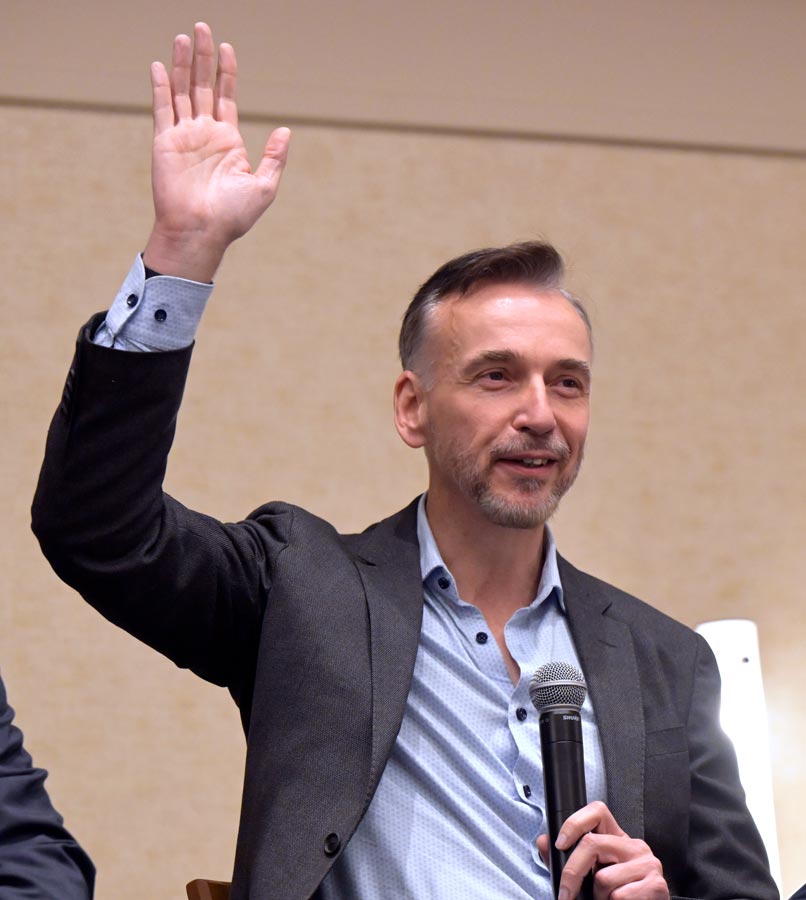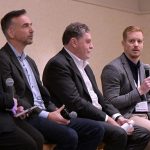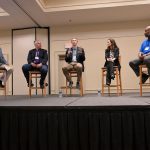Rapid fire panel shares insights on current trends in the chemical and process industries
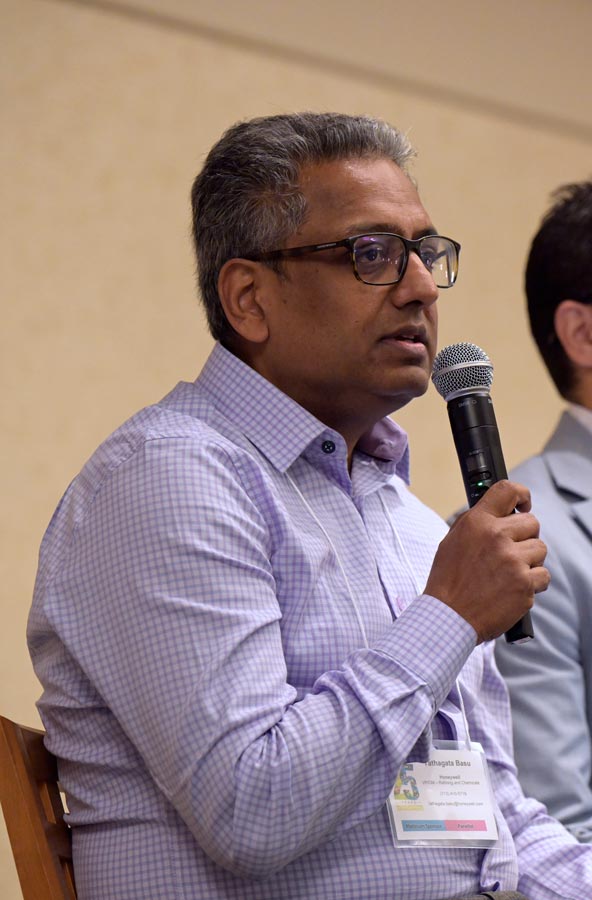
A rapid-fire panel of nine innovations leaders provided insights on current trends—ranging from artificial intelligence to sustainability—and what they brought to eChemExpo 2024. The panel included representatives of two platinum sponsors, including Honeywell, Siemens; and seven gold sponsors, including AVEVA, CalGavin, Hunter Buildings, MarqMetrix, Teikoku USA, TLV Corporation and Trackonomy Systems.
Tathagata Basu, managing director at Honeywell, said the chemical industry is going through a rapid transformation. “It’s changing from being largely a linear value chain to a circular value chain,” said Basu, a first-time eChemExpo attendee. “And that has tremendous impact on every aspect of the business, whether it’s innovation needed in process design, manufacturing processes, even reverse logistics. That’s something the industry never had to deal with.” Basu said Honeywell was bringing data circularity to the table. “And what I mean by data circularity is how you can leverage every piece of data that you can get,” he said. “Whether it’s inside the plant or in the business layer, how you use every bit and bite to make sure that you are not only collecting them most efficiently, but communicating it to the right place most effectively, storing them, and then utilizing that piece of data in multiple different ways to drive business inside.” Honeywell brings advanced capability of sensing, controls and applications that use artificial intelligence, he
It’s changing from being largely a linear value chain to a circular value chain…
—Tathagata Basu, Managing Director, Honeywell
Jose Roberto Manzano, Head of Sales for Siemens N.A., shared three main trends that his company sees, not only in the chemical & process industries, but in all industries. Climate change and sustainability. “Siemens is investing in partnerships to drive solutions in this area,” Manzano said. The second trend is industrial metaphors. He said Siemens has many solutions, such as augmented reality, virtual reality and extended reality. The third trend is artificial intelligence and how the technology is going to shape the way people work, Manzano said.
Michael Draper, the chief operating officer at Hunter Buildings, shared his thoughts on current trends. Projects tend to need more highly technical structures to protect sensitive equipment, such as control rooms and data centers, he said. “And then we have new technologies coming out that are being utilized,” Draper said. “GIS systems, gas-insulated switchgear systems, require more highly technical structures.” Another trend in the construction industry is the concept of true modular construction. “And we’ve been doing it for 25 years now and have been working in that environment where that sort of 90 percent of the construction project can be done in a controlled manufactured facility with the benefits of the controlled workforce, reduce safety risk, short timelines,” Draper said. Draper said another trend is the need to harden the infrastructure to prepare for such incidents as ballistics and fires.
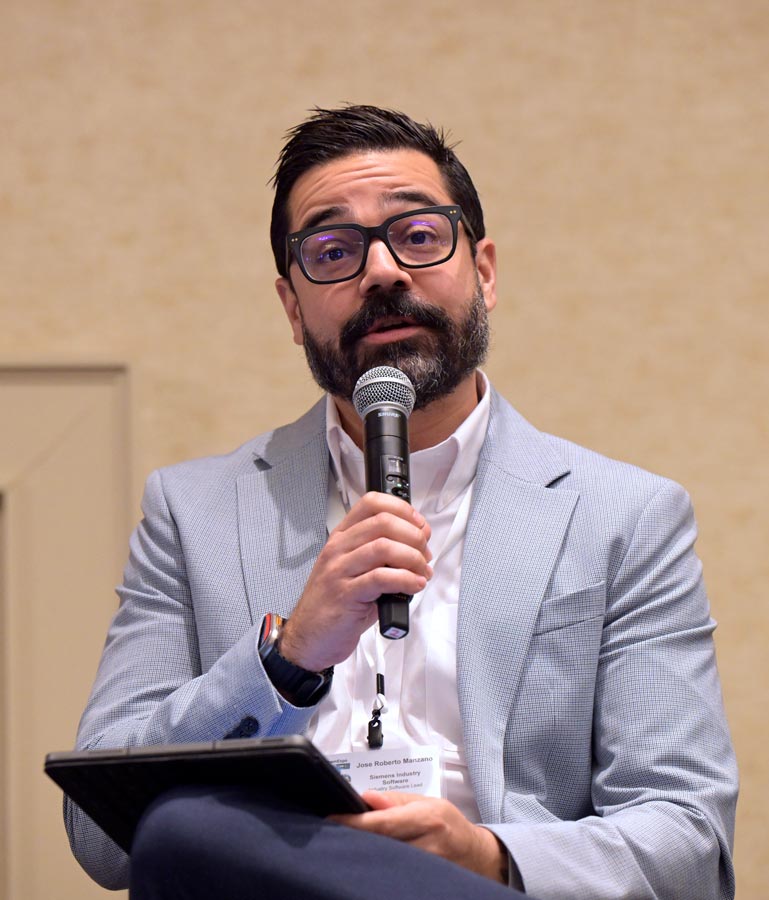
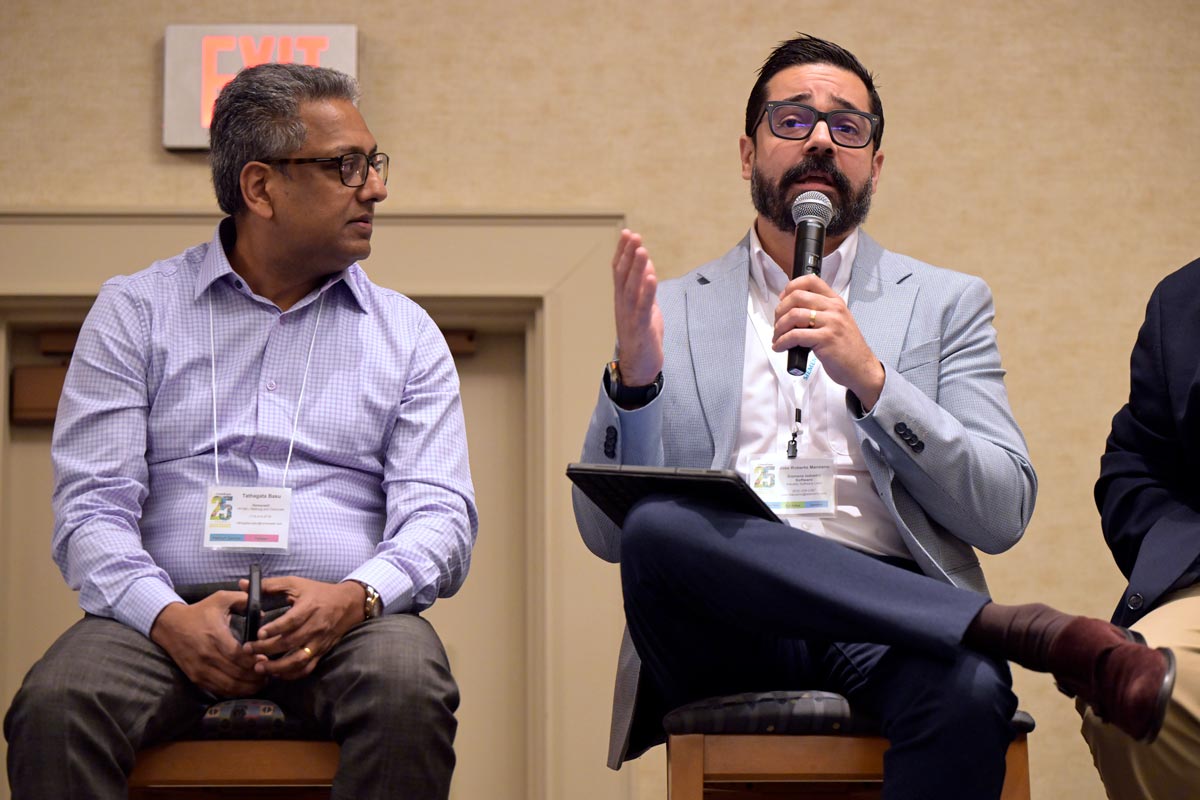
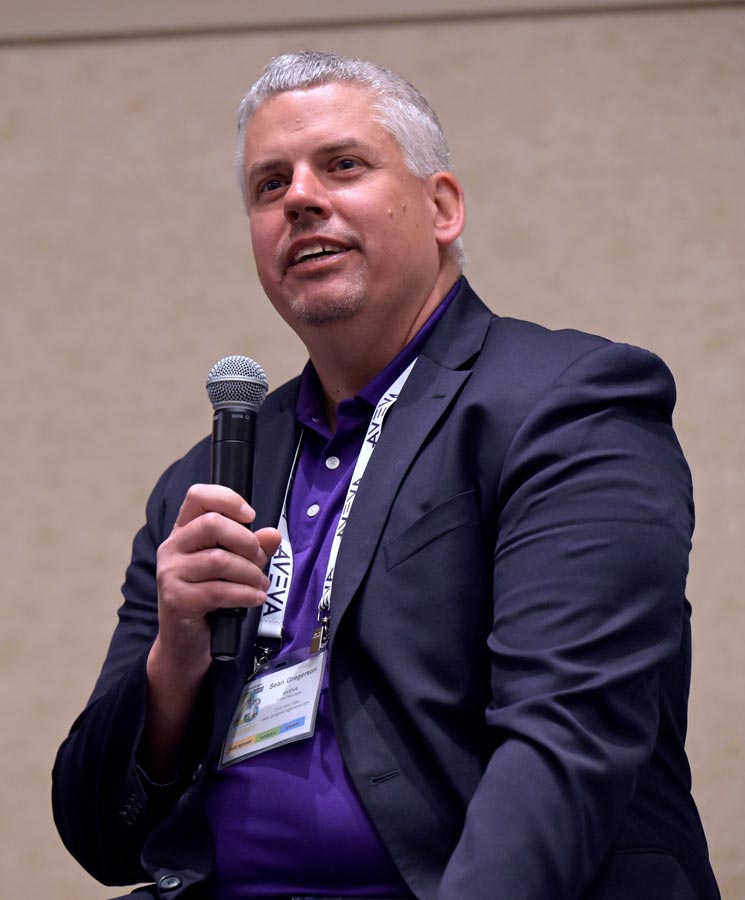
Sean Gregerson, vice president of asset performance at AVEVA, said his company is seeing a number of challenges in the chemical industry. “Perhaps none greater than these downward inflationary pressures that we have in our businesses today,” Gregerson said. “That really necessitates change. We can no longer continue to operate the way that we have in the past.” Industry must operate with greater resiliency, agility and productivity to secure the profitability of business. “And digital technology can really help with that and from a sustainability perspective,” he said. “Perhaps the most immediate impact that we can have is to operate our existing industrial assets with greater levels of performance and efficiency and productivity and reliability. And then certainly from a workforce productivity perspective, these digital technologies and industrial software can have a significant scaling effect on the workforce.” At AVEVA, Gregerson said customers tend to see the company through a single product. “But at AVEVA, we have these industrial software solutions that span the entire asset life cycle from design to operations, to asset management and optimization and we’re helping our customers progress on their digital journeys, their digital transformation journeys and helping them progress with their digital maturity,” he said. “We have the ability then to take all those rich industrial (tools) that we’re using; AI, machine learning, all these advanced capabilities, and then securely bring that to the cloud so that you can share that with your ecosystem of partners and suppliers and vendors and customers that you work with.”
Martin Gough, Founder and Managing Director, spoke about his company, CalGavin, which is located in the United Kingdom. “Before COVID, we were having 25 projects a month coming from around the world,” Gough said. “And that’s very varied in the peaks and so on, but always challenging because when you think you’re going to put a cover packing, you call it packing, in a tube and change the flow patterns, change the timing rates, change the heat transfer rates, you’re looking at condensers and re-boilers, and so on and so on.” The process is challenging, he said. “We have our own laboratory that’s growing at enormous rates, to generate our own data,” he said. “We have to guarantee the things that we’ve put in. Software providers don’t provide the guarantee through the software.” Better data and more organization is needed, he said.
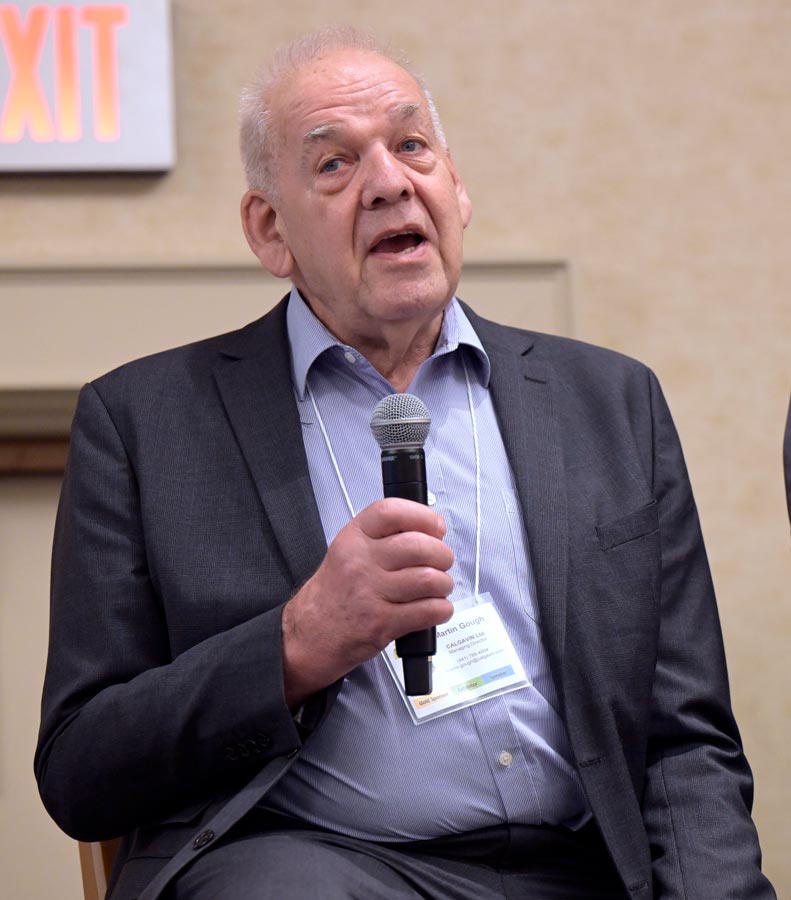
I think in current trends right now, one of the things we're all extremely fortunate to live in the good old USA for a variety of reasons, but we've got absolutely the lowest energy costs of any kind really in history and anywhere on the planet
—Norm White, President of TLV Corporation
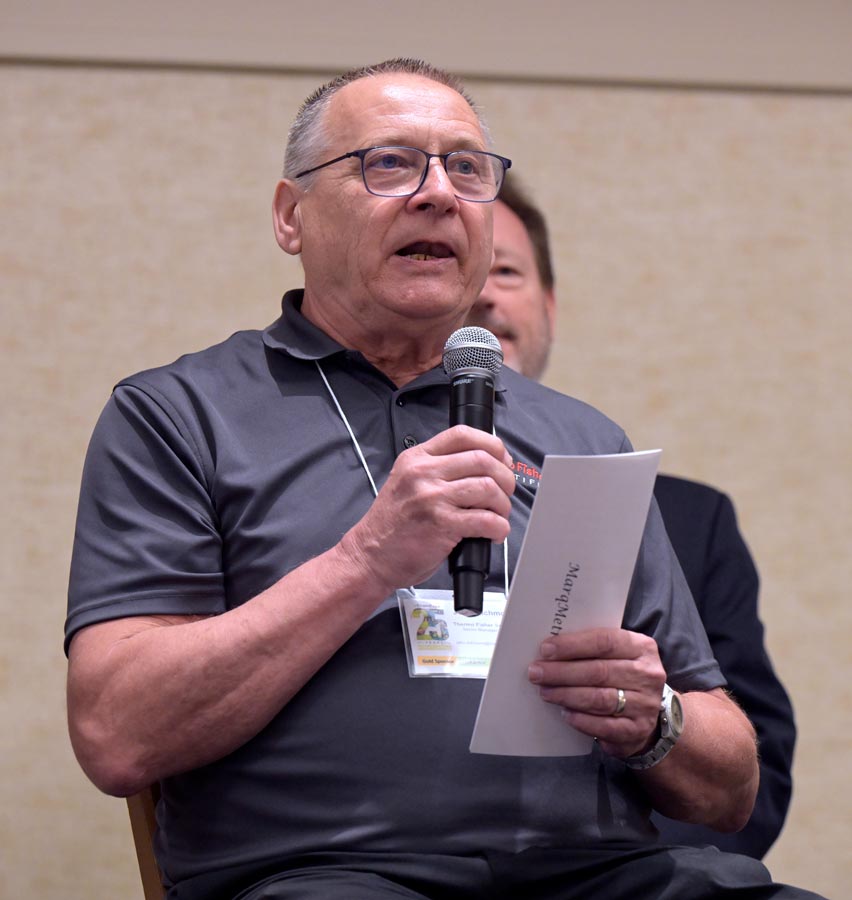
John Richmond, senior manager of sales at MarqMetrix, a division of Thermo Fisher Scientific, spoke briefly about Raman spectroscopy, which the company displayed at the expo. Thermo Fisher customers are demanding less complex solutions that are easy to install, little to zero maintenance, smaller with a faster response time, and much more affordable, Richmond said. Lower costs are important, he added. The company’s all-in-one process analyzer is “really moving the industry in this direction,” Richmond said.
Norm White, president of TLV Corporation, a steam specialist company, shared insight into current trends. “I think in current trends right now, one of the things, we’re all extremely fortunate to live in the good old USA for a variety of reasons, but we’ve got absolutely the lowest energy costs of any kind really in history and anywhere on the planet,” White said. After 2022, with peaks in natural gas, prices have stabilized, he said. “A lot of people look at what we do in the steam world that goes up and down (with) the cycles of the energy cost, but I guess, the trend is changing now with the impact that it can have on C02,” White said. Things like carbon capture are possible, “but there’s low hanging fruit out there right now,” he said.
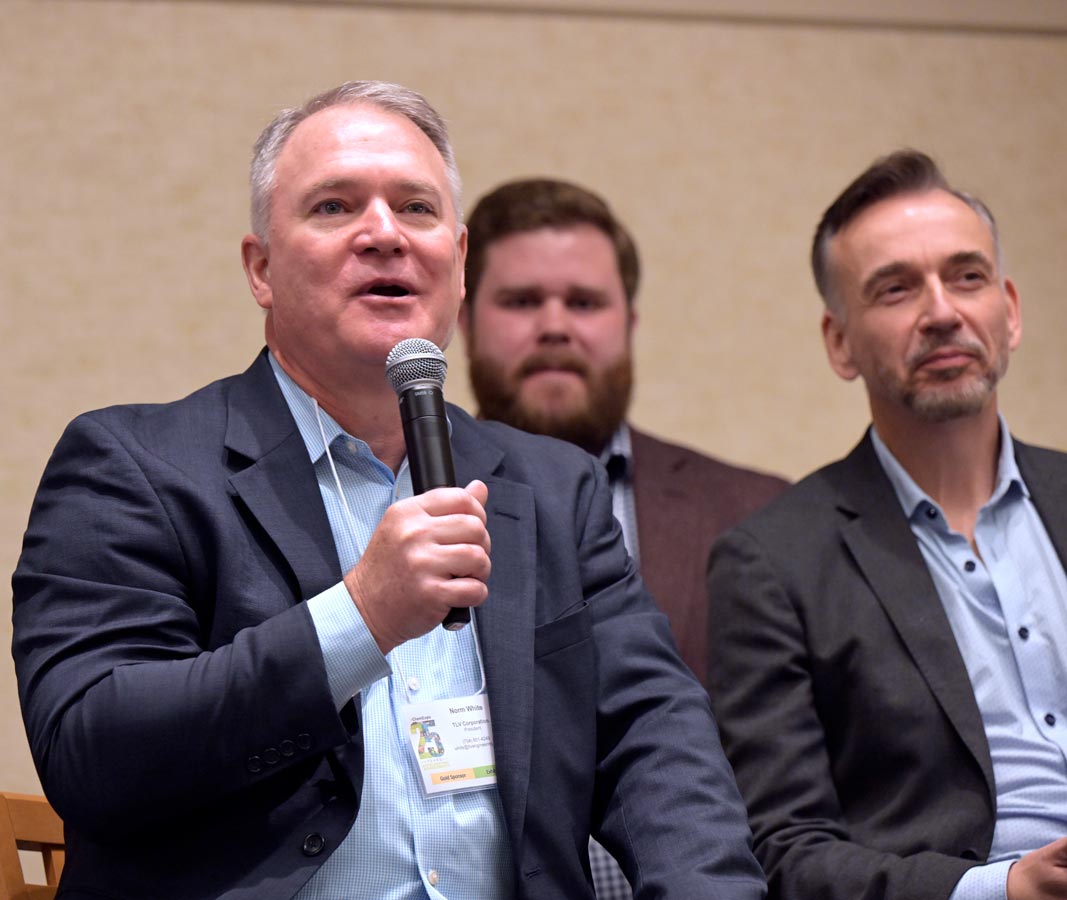
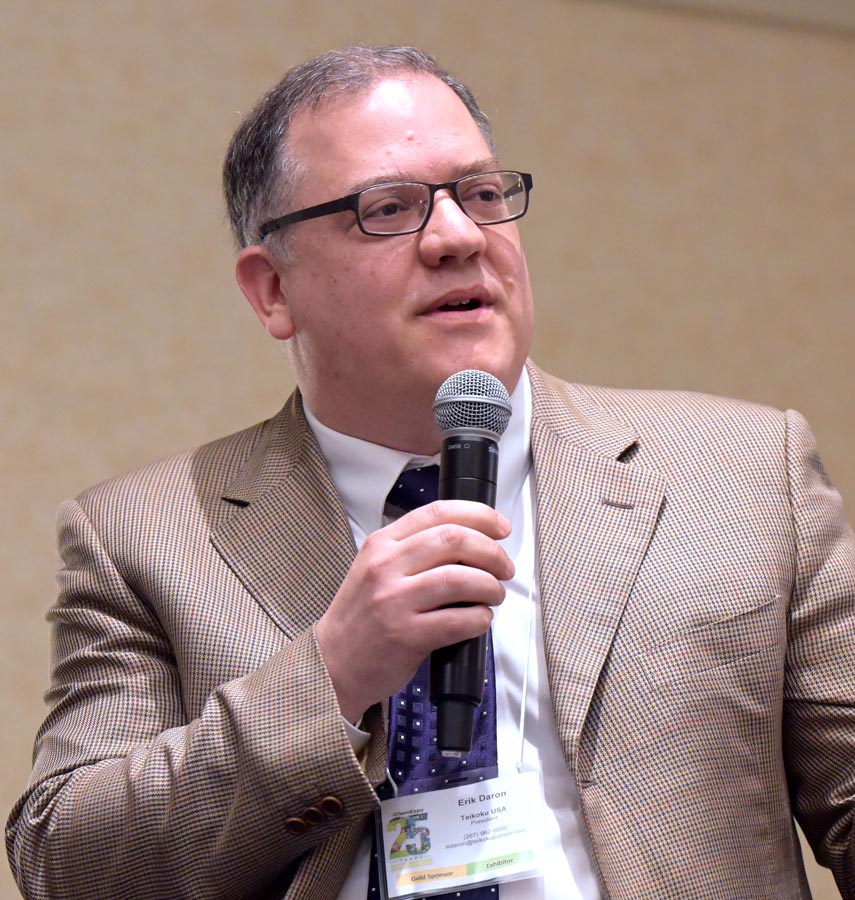
Erik Daron, president of Teikoku USA, said his company plays a major role in environmental sustainability by preventing emissions to the atmosphere. “So therefore we’re gearing up to actually expand manufacturing in the U.S.,” Daron said. As far as trends, Daron spoke on AI, which he described as a key enabler in the industry. “We, in our case, as an example, we’re investing in a predictive model with AI to be able to determine maintenance requirements and spare parts so we can empower our customers to reduce downtime and improve performance,” Daron said. There’s a lot of work to do on the models and on digital tools, he added. “I think we need a lot of discipline,” Daron said.
Dr. Erik Volkerink, co-founder and CEO of Trackonomy Systems, shared his thoughts on the company and current trends. “We’ve been very secretive,” said Volkerink, who said his company has been talking more publicly about what it has accomplished. The company, he said, basically develops solutions that are alternatives for mission control, dashboard-centric computing. “We’re solving a lot of other problems as well, but autonomous web flow interventions, seamless AI streams around the field,” he said. “We’re also trying to let your sensors do the talking and solve problems on the fly within a few seconds versus going to a mission control environment.” Trackonomy started about seven years ago, and work has included vaccine distributing during the COVID-19 pandemic. “That was done by our company behind the scenes,” he said.
